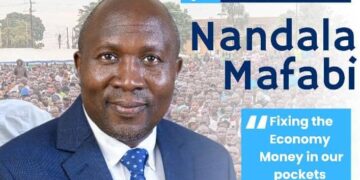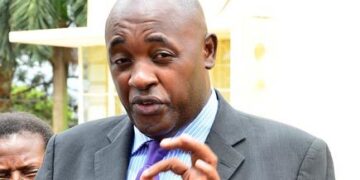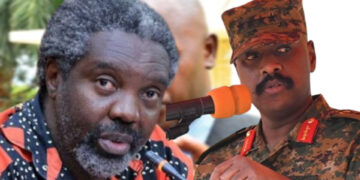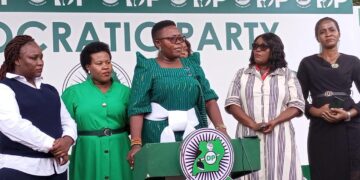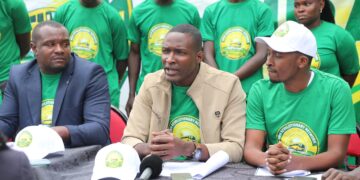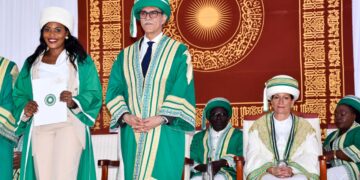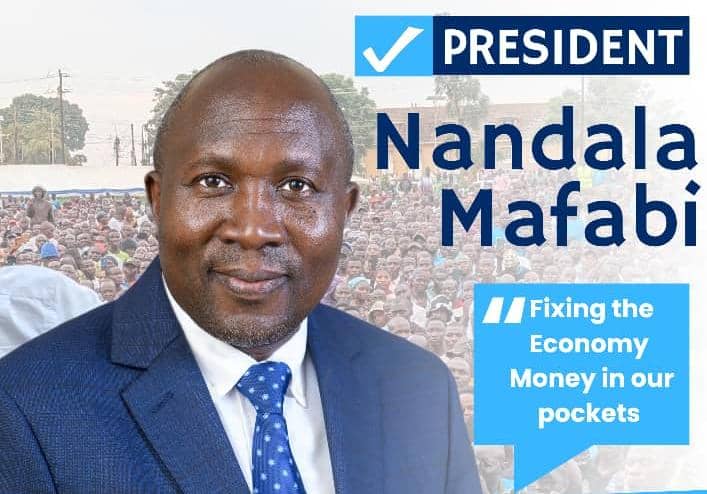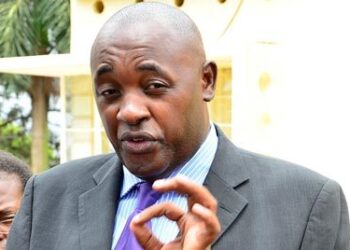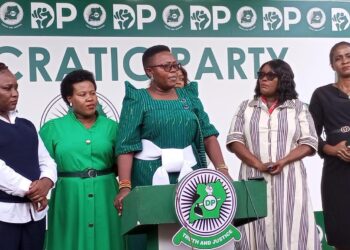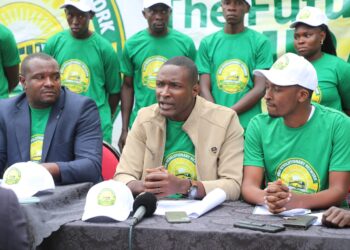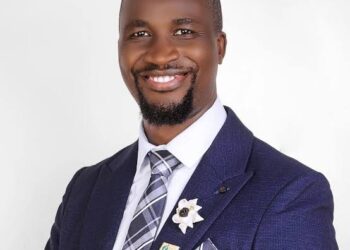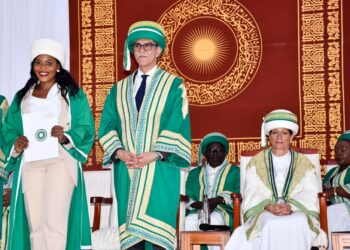HOIMA
Forum for Democratic Change (FDC) presidential candidate Nathan Nandala Mafabi has called for urgent government intervention to address poverty, support small businesses, and ensure Uganda’s natural resources benefit local communities and future generations.
Speaking during a press conference at Kolping Hotel in Hoima, ahead of his campaign trail in western Uganda and the oil-rich Bunyoro sub-region, Nandala warned that many Ugandans live in hopelessness, trapped in a cycle of poverty and exploitation.
“Our people are in dire need of help. Poverty is increasing, and many have given up. This country should empower its citizens to contribute to national production and live better lives,” he said.
He criticized the current tax system, which treats low-income earners and small businesses the same as large corporations, stifling growth among small-scale entrepreneurs.
“We must help small businesses grow into medium and eventually large enterprises,” he said. “A fair and segregated taxation system is key to lifting our people out of poverty.”
He emphasized that informal sectors, such as boda boda operators, are being exploited through predatory loans, forcing many young people to sell family land to repay debts.
“One boda boda ends up costing four times the original price due to exploitative loans,” Mafabi said. “Young people are being enslaved by a system that should be helping them thrive.”
Turning to agriculture, Nandala promised to help farmers secure fair prices for their products, particularly Uganda’s premium Arabica coffee and bamboo products. He noted that Kenyan coffee commands higher international prices due to government support, while Ugandan farmers lose out.
“We must cut out middlemen who take profits without contributing value,” he said. “Our farmers deserve to benefit from every step of the value chain.”
Nandala also pledged to tackle high interest rates that hinder farmers and small businesses, linking the problem to government borrowing and budget deficits.
“High interest rates come from government borrowing through treasury bills and bonds. This hurts small businesses and farmers who are trying to grow,” he said.
On oil management, the FDC Secretary General (Nandala) warned that Uganda’s oil reserves could become a curse if mismanaged, and pledged that local communities in oil-producing areas would be the first beneficiaries of revenue.
“Oil is God-given and should benefit the people of Uganda. All resources must be applied to productive sectors, not wasted through leakage or extravagance,” he said.
He stressed the importance of saving for future generations, ensuring that oil revenues fund sustainable development rather than immediate debt repayment.
“When you make resources out of oil, there should be something set aside because one day, the oil will be exhausted,” Mafabi said.
Additionally, Nandala called for investment in local infrastructure such as hotels, entertainment, and services that would allow communities near oil fields to benefit directly.
“Locals should be helped by the government to invest and benefit from these resources before outsiders or other regions,” he said.
He said that the FDC manifesto provides practical solutions to Uganda’s economic challenges, from poverty reduction and business support to agriculture and oil revenue management.
“This country has the potential to grow. But we must manage our resources in a systematic and protective way for the people of Uganda,” he said.
